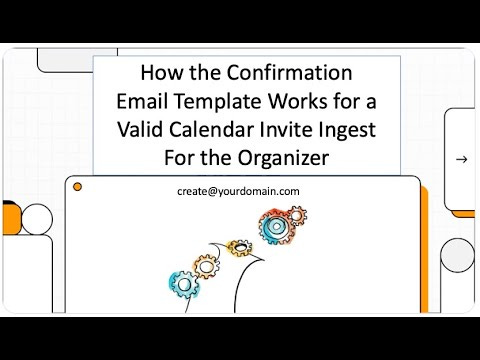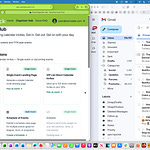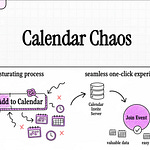Briefing Document: Notify Organizer of Successful Event Creation - Technical Overview
Date: February 24, 2025
Source: Excerpts from "Chapter 11 ‐ Notify Organizer of Successful Event Creation ‐ Technical Overview · calendarinvite/calendarinviteserver Wiki · GitHub"
I. Executive Summary
This document provides a technical overview of the "Notify Organizer of Successful Event Creation" function within the Calendar Invite Server (CIS). The primary purpose of this function is to ensure event organizers receive confirmation that their events have been successfully registered in the system, thereby improving transparency and user confidence. The system leverages several AWS services, including Lambda for processing, SES for email notifications, SQS for message queuing, and CodeCommit for template storage, to efficiently deliver these confirmations.
II. Main Themes and Core Functionality
The central theme revolves around providing event organizers with timely and accurate confirmation of successful event creation. This is achieved through a robust, AWS-centric architecture designed for reliability and scalability.
Key ideas and facts include:
Core Purpose: The function's explicit goal is to "inform event organizers when their event has been successfully created." This "ensures transparency and confirms that the event has been properly registered in the system."
AWS Service Stack: The function is built upon a specific set of AWS services, highlighting a cloud-native approach:
AWS Lambda: "Handles event processing and notification dispatch." This indicates Lambda is the computational backbone for executing the notification logic.
Amazon SES (Simple Email Service): "Sends confirmation emails to organizers." SES is the chosen platform for reliable email delivery.
Amazon SQS (Simple Queue Service): "Manages event creation messages in the queue." SQS acts as a buffer and ensures message persistence and asynchronous processing.
AWS CodeCommit: "Stores the email notification template." CodeCommit provides version-controlled storage for the email content.
Event Processing Flow: The notification process follows a clear, step-by-step workflow:
Trigger: The function is "triggered by an SQS event notification," indicating an event-driven architecture.
Extract Event Details: The system "Retrieves event details from the SQS message" and "Loads the email template from AWS CodeCommit."
Send Notification: A "confirmation email via SES" is sent to the organizer.
Cleanup: "Deletes successfully processed messages from SQS," preventing reprocessing and ensuring queue management.
Key Functions/Components:lambda_handler(event, *): The entry point for the Lambda function, which "Iterates through each record in the SQS event" and calls process_request_from.
process_request_from(record): Responsible for "Extracts event details from the message," "Loads the email template from CodeCommit," "Sends the email notification to the organizer," and "Deletes the processed message from SQS."
get_event_notification_email_template(event): Fetches the template from CodeCommit and "Dynamically replaces placeholders ({mailto}, {summary}, {uid}, {events}) with event-specific details."
delete_successfully_processed_sqs(message): Essential for "Removes successfully processed messages from SQS to prevent retries."
Data Handling and Configuration:Email Format: The recipient is the "mailto field" (organizer's email). The template is sourced from CodeCommit.
Environmental Variables: Critical configuration parameters are managed via environment variables:
REGION: AWS Region for execution.
SUBJECT: Email subject line.
SENDER: Sender email address.
NEW_EVENT_NOTIFICATION_EMAIL: Path to the email template.
CODECOMMIT_REPO: Name of the CodeCommit repository.
SQS_URL: URL of the SQS queue.
III. Error Handling
The system incorporates specific error-handling mechanisms to maintain functionality and aid in debugging:
Failed Email Notifications: While "Logged for troubleshooting," these "do not impact CIS functionality," implying a non-critical impact on the core system flow.
Missing Email Templates: If the template is unavailable, "an error is logged and the message remains in SQS for retry," indicating a mechanism for transient error recovery.
Exception Logging: "Logs errors to facilitate debugging," a standard practice for operational visibility.
IV. Broader Context and Implications
This specific function is part of a larger calendarinvite/calendarinviteserver system, suggesting a comprehensive suite of tools for event management. The document title itself ("Chapter 11") and the listing of other chapters (e.g., "Send Bulk Event Invites," "Notify Organizer of Failed Event Creation," "Create New Event Record") indicate a modular design where various event-related operations are handled by distinct, specialized functions. This modularity, coupled with the reliance on managed AWS services, suggests an architecture designed for scalability, maintainability, and resilience. The emphasis on user notification underscores a commitment to a transparent and user-friendly experience within the event management platform.












